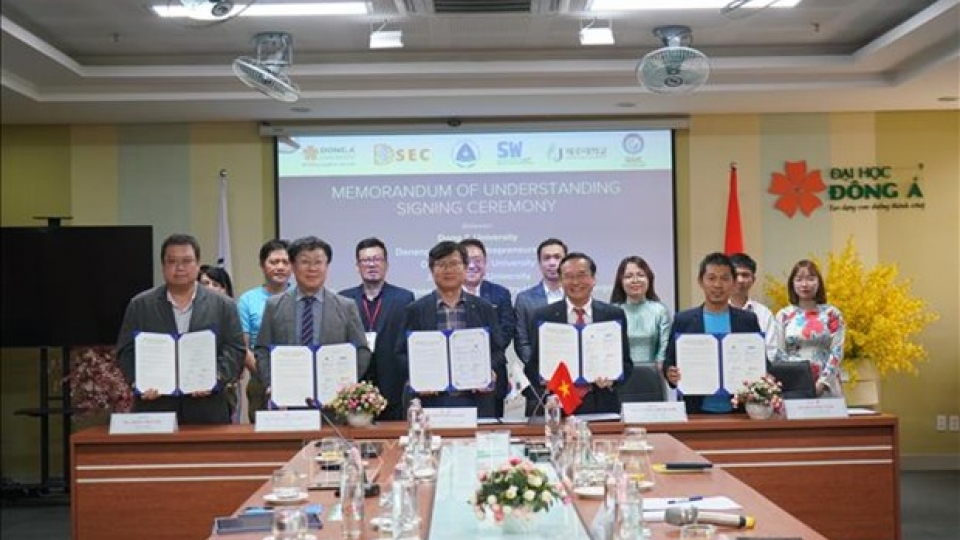“Out-of-the-box” mechanisms needed to attract technology talents: insiders
To attract top global experts and professionals in science and technology to work in Vietnam, breakthroughs are needed not only in policies and mechanisms but also in management thinking, according to experts.

Rolling out the red carpet for global talents
At the recent mid-year review conference on the implementation of Resolution No. 57-NQ/TW, Party General Secretary To Lam directed the development of a robust framework for attracting and utilising talents.
He emphasised that the Ministry of Home Affairs, in coordination with the Ministry of Science and Technology, the Ministry of Education and Training, the Ministry of Finance, and the Ministry of Foreign Affairs, must urgently formulate and issue policies to attract high-quality human resources, both domestically and internationally, in science, technology, innovation, and digital transformation, with focus on key technological fields such as artificial intelligence (AI), semiconductors, and new materials.
These policies must include special incentives, such as beyond salary caps, housing support, and world-class working environment, to bring at least 100 leading Vietnamese experts back to the homeland to work. This task is to be completed by this August.
In line with the above directive, at a recent meeting of the Government Steering Committee on the Development of Science, Technology, Innovation, and Digital Transformation, Prime Minister Pham Minh Chinh assigned concrete tasks to ministries, sectors, agencies, and local authorities, including developing special incentives for top talents and experts like chief engineers and lead architects responsible for implementing strategic systems and breakthrough initiatives.
According to Minister of Science and Technology Nguyen Manh Hung, the strategic direction of Vietnam’s science and technology sector is to attract global talent to help solve the country’s key challenges such as two-digit growth rates, green energy, and environment pollution solution, thereby driving national development and prosperity. However, for the country’s major issues, domestic research capacity currently meets only about 20% of the demand, while the remaining 80% must rely on international cooperation.
Proposals to attract more talents
Most recently, the National Assembly passed the Law on Science, Technology, and Innovation, which clearly stipulates special incentive policies for technology talents.
Nguyen Khac Lich, Director General of the Department of Digital Technology Industry under the Ministry of Science and Technology, affirmed that the Law on the Digital Technology Industry includes provisions to attract talents. Digital technology experts will enjoy special mechanisms for salaries and bonuses, enabling fair competition with other countries.
They will be provided with housing and living support; and will be honoured and rewarded in accordance with the law. Specifically, foreign professionals will be granted five-year temporary residence, which can be renewable under legal regulations. In cases where the foreign professional has a spouse or children under 18 years old, they will receive similar support. High-quality personnel in the digital technology industry will also be eligible for personal income tax exemption for five years.
According to Deputy Minister of Foreign Affairs Le Thi Thu Hang, the first priority should be given to improving the legal framework, especially regulations related to nationality, to encourage overseas Vietnamese to return home.
Next is to create a healthy working environment with fair competition based on merit and contributions. Specifically, this means making strong investments in public universities, laboratory systems, and research institutions. At the same time, there should be mechanisms for financial autonomy and flexible compensation, including the removal of salary caps, to attract talents. Importantly, the government, ministries, sectors, and localities need to propose concrete problems and research topics for overseas Vietnamese intellectuals to engage with, Hang stressed.
Professor Dr. Chu Duc Trinh, Rector of the University of Engineering and Technology under the Vietnam National University, Hanoi, emphasised that the issue is not merely about attracting enough talents, but about ultilising them effectively to maximise each individual's capabilities.
Identifying, selecting, and placing talents in the right positions, where they can bring into full play their strengths and make meaningful contributions, requires a long-term vision, decisive action, and close coordination among ministries, universities, research institutes, and businesses.
Only by addressing the human resources challenge in a systematic and strategic manner can Vietnam turn potential into a genuine competitive advantage, he noted.



